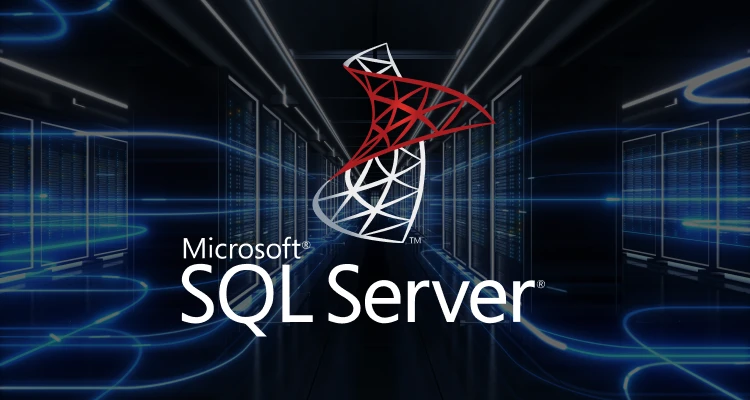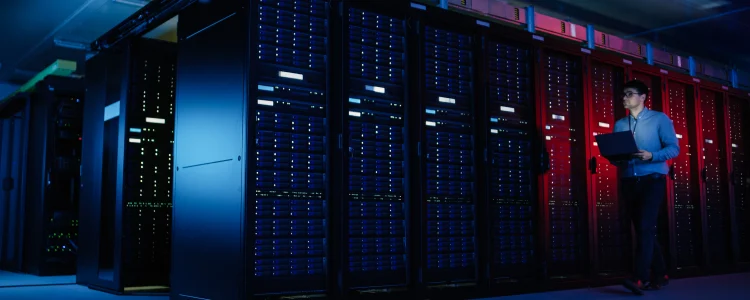How much does a Microsoft SQL Server Cost in 2025?

Microsoft SQL Server is a relational database management system (RDBMS) that uses tables and rows as a storing mechanism for data. It uses SQL (Structured Query Language) for data management like all the other relational databases. It also offers TSQL (Transact-Structured Query Language), which is a customized version of SQL used only with Microsoft SQL Server.
Having first been released in 1989, Microsoft SQL Server has grown in popularity and continues to be one of the top 10 most popular databases internationally. Since 2002, ServerMania has offered a variety of SQL hosting solutions to meet a variety of needs, from small business websites to enterprise grade requirements.
In this tutorial, we will go over Microsoft SQL Server pricing to give you a better understanding of which editions are available so that you can decide which one is best for your business application.
See also: (Live Webinar) Meet ServerMania: Transform Your Server Hosting Experience
Why use an SQL Server?
When it comes to using a solid database for a production environment, there is no doubt that Microsoft SQL Server is among the popular choices in the industry. But apart from being a powerful database, here are some other advantages you might want to consider while choosing an SQL Server.
- Highly supported in the cloud: Since Microsoft owns both SQL Server and Azure Cloud Platform, they are highly compatible with each other. Microsoft Azure offers a lot of services that could be easily used with SQL Server. For example: Hybrid cloud solutions, Backups, Disaster recovery, etc.
- Developer Friendly: There is no doubt that one of the biggest problems with a non-popular database is compatibility and support with various programming languages. Luckily Microsoft SQL Server offers developer-friendly tools and APIs that can be used with almost all programming languages such as .NET, Java, Python, etc.
- Analytics capabilities: Microsoft SQL Server offers robust analytics features called SQL Server Analysis Services (SSAS). By using this tool you can increase your business intelligence and easily translate your data into valuable results that, in turn, will benefit your company.
- Scalability: One of the most important aspects of a database is the ability to scale efficiently and on demand, and that is what Microsoft SQL Server is good at.
- Support: SQL Server is made by Microsoft. The benefit here is that a big company like Microsoft offers extensive documentation, good customer service, and better product support. Microsoft also offers software assurance benefits that can be purchased additionally.
- Security: The developers of a big database program like SQL Server always try to keep their product’s secure and up to date. SQL Server includes features like row-level security, auditing, encryptions, and role-based security.

SQL Server Versions
Over the years Microsoft has introduced numerous versions, each having different features and advantages over the other. Here are the most recent versions of the Microsoft SQL Server.
- SQL Server 2012
- SQL Server 2014
- SQL Server 2016
- SQL Server 2017
- SQL Server 2019
- SQL Server 2022
The developer version of SQL Server is free for testing purposes. But if you want to use it as a main database, there are several edition types and licensing types to choose from.
Note! In this tutorial, we will be only focusing on SQL Server 2022. All the information about features and pricing are for SQL Server 2022.
See also: SQL Server 2016 Guide and SQL Server 2016 System Requirements
SQL Server Editions
Microsoft offers SQL servers under different editions and each edition has different capabilities. Below we will explain the different editions Microsoft provides:
- Developer: This version is a free version having all the features and capabilities. However, it cannot be used in a production environment since it is meant to be used for testing purposes.
- Express: This version is also free, like the developer version but is limited in hardware utilization and database size. It is mainly focused on small-scale applications and learning purposes.
- Web: This version is only designed for web hosting scenarios and this version is cheaper in a cloud environment compared to other editions. If you would like to use it, contact your hosting partner.
- Standard: This edition is an average and medium edition mainly focused on small and medium sized companies. It includes all the basic features and also analytics and reporting. This edition offers both the core licensing model and the cal licensing model.
- Enterprise: This version is the highest and includes all the features the SQL Server provides. This edition is effective for large scale applications and big companies that have a lot of traffic and data. The licensing type of this edition is per-core based. Some of the special features are data warehousing, advanced analytics, and high availability.
For more information about the different versions check out our details SQL Server Edition Comparison: Web vs Standard vs Enterprise.

Licensing Costs
SQL Server pricing is based on the licensing model. The starting price is zero but if you want more features you can choose different types of editions according to your needs. Also, note that volume licensing is a bit cheaper.
The pricing below is from SQL Server 2022 versions.
SQL Server 2022 Pricing
| Editions | Open no-level price (US dollar) | Licensing model | Channel availability |
| Enterprise | $15,123 | 2 core pack | Volume licensing, hosting |
| Standard – per core | $3,945 | 2 core pack | Volume licensing, hosting |
| Standard – server | $989 | Server[3] | Volume licensing, hosting |
| Standard – CAL | $230 | CAL | Volume licensing, hosting |
| Developer | Free | Per user | Free download |
| Web | See your hosting partner for pricing | Not applicable | Hosting only |
| Express | Free | Not applicable | Free download |
Conclusion
All in all, Microsoft SQL Server is without a doubt one of the most popular database solutions available on the market. Since it is backed by a big company customers will benefit from future updates and can depend on it to be an extremely reliable database.
Not only can it be hosted on your server, but it can be also be used in the cloud by third-party cloud providers like Microsoft Azure.
ServerMania also provides database hosting solutions with Microsoft SQL. If you are interested in our hosting solutions, hop on over to our Database Server Hosting Solutions page for more information and pricing.
Remember, the pricing of SQL Server is determined by the edition you choose. Again, the editions are as follows:
- Developer and Express Editions: FREE
- Standard Edition: Priced per-core and per-server.
- Enterprise Edition: The most capable, yet expensive, version.
Next Step
Now that you have some pricing information for Microsoft SQL Server, check out our article on How to Install an SQL Server with the Server Management Studio Tool.
You may also want to check out our knowledge base for more articles like this. If you have any other questions regarding database hosting solutions or cloud server hosting, consider booking a free consultation with us today.
Was this page helpful?

